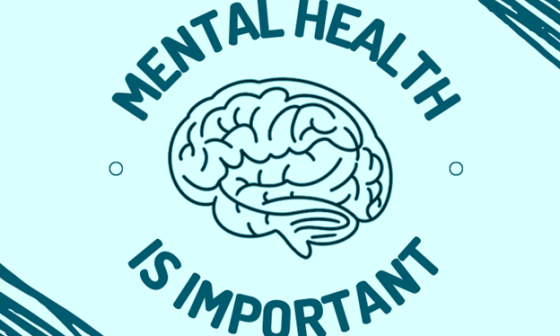Introduction
Hypertension is the leading cause of heart disease, stroke, kidney failure, and other major health issues, hypertension is also referred to as high blood pressure. Maintaining general health entails preventing and managing hypertension. Drugs can indeed help lower blood pressure, but lifestyle modifications, especially physical activities are essential for long-term control. Frequent exercise helps control blood pressure, strengthens the heart, and enhances general health.

Credit: Shutterstock
This article discusses the value of exercise for those with hypertension, the types of exercises, and tips on how you can begin implementing healthy lifestyle choices that can help control and even lower blood pressure.
Six Benefits Of Exercise For Hypertensive Patients
- Exercise Naturally Lowers Blood Pressure
The capacity of regular exercise to reduce blood pressure is among its most obvious advantages. Your heart gets stronger as you exercise, and a stronger heart can pump blood more effectively, which relieves pressure on your arteries. Frequent exercise lowers systolic and diastolic blood pressure readings by 4 to 6 mmHg on average. This reduction is beneficial as well as drugs, as it improves medication outcomes, decreasing morbidity and mortality.
- Better Heart Health
For people with hypertension, exercise is essential because it strengthens the heart and increases circulation. The heart becomes more effective at pumping blood when the cardiovascular system is worked by aerobic exercises (such as swimming, cycling, or walking), which lessens the strain on the arteries. Frequent exercise supports improved arterial health by raising HDL (good cholesterol) and lowering LDL (bad cholesterol). Additionally, it reduces the chance of coronary artery disease, which frequently coexists with hypertension and other cardiovascular disorders.
- Weight Management
Being overweight puts more strain on the heart and blood vessels, especially around the abdomen, which can result in high blood pressure. Controlling high blood pressure requires maintaining a healthy weight. Frequent exercise burns calories and aids in weight loss, especially with a nutritious diet. Additionally, exercise-induced weight loss in hypertensive patients can reduce their risk of developing diabetes, a condition that is frequently linked to high blood pressure.
- Stress Reduction
Stress is known to cause brief increases in blood pressure, and if left untreated, persistent stress can result in burnout and long-term hypertension. One natural and efficient method of lowering stress levels is to exercise. Endorphins, the body’s natural mood boosters, are released when you exercise, which helps reduce stress and anxiety levels.
- Increased Insulin Sensitivity
Insulin resistance, which can result in type 2 diabetes, is a common condition in patients with hypertension. Frequent exercise increases insulin sensitivity, which facilitates the body’s better utilization of blood sugar. Exercises involving strength and aerobics assist muscles in using glucose as fuel, lowering blood sugar levels. If you are already diagnosed with hypertension you can reduce your likelihood of getting diabetes and better manage both illnesses if you currently have both by increasing insulin sensitivity through exercise.
- Improved Sleep
Hypertension can impact rest and sleep whereas irregular sleep can exacerbate hypertension. Exercise helps improve sleep quality, by enhancing the body’s internal clock and lowering restlessness. Additionally, frequent exercise enhances the quality of your sleep and helps you fall asleep more quickly.
Exercises Beneficial For People With Hypertension

Credit: Getty Images/ Everyday Health
Exercises vary in their ability to control hypertension. Patients with hypertension benefit most from the following forms of exercise:
- Aerobic workouts: These exercises enhance circulation and strengthen the heart. Among the examples are:
- Walking
- Running
- Riding a bicycle
- Swimming
- Dancing
- Strength training: Strength training enhances bodily strength and muscular tone. When done in moderation, it can lower blood pressure. It entails the use of resistance bands or small weights. Additionally, make sure to work out your entire body two or three times a week.
- Exercises for flexibility and balance, like yoga or stretching, can help lower stress and increase muscle flexibility, both of which can lead to improved heart health.
Safety Advice For People With High Blood Pressure
Even though exercise has many health benefits, people with hypertension should exercise caution, especially if they have severe hypertension or other medical issues.
Here are some guidelines for safety:
- Speak with your physician: Obtaining your doctor’s consent is crucial before beginning any new fitness program, particularly if you have uncontrolled blood pressure or other health conditions.
- Stay hydrated: Drink lots of water because dehydration can raise blood pressure, especially while working out in tropical areas like Nigeria.
- Start slowly: Start with easy ones like walking. As your fitness level increases, progressively increase the intensity of your exercises.
- Stay measured: Keep an eye on your blood pressure, to make sure your blood pressure stays within a safe level, check it both before and after working out.
- Stay on therapy: Yes exercise lowers your blood pressure singly, however, if you are on drugs remain on your medications except your physician changes it.
Strategies to Maintain Your Lifestyle
- Establish a routine.
- Establish a reasonable, specific, realistic, and doable objective.
- Make sure you have fun doing the things you have planned.
Conclusion
Frequent exercise is essential for controlling blood pressure and enhancing general heart function in hypertensive people. Exercise provides a comprehensive strategy for managing hypertension by assisting in weight loss, lowering blood pressure, increasing insulin sensitivity, enhancing cardiovascular fitness, improving sleep, and reducing stress. For long-term health benefits, make it a point to include physical activity in your everyday life and always get medical advice before beginning a new exercise program.
Wellahealth is dedicated to helping you manage chronic illnesses like hypertension. Our all-inclusive and affordable healthcare packages ensure you get doctor’s consultations, blood pressure testing, genuine drugs, and lifestyle modification plans to help you live a long and healthy life.
To subscribe to our affordable plans, send us a WhatsApp message today!
Article written by Dr. Ifeoma M. Uduh (BDS)
Edited by Dr. John Afam-Osemene (MBBS, DA)





